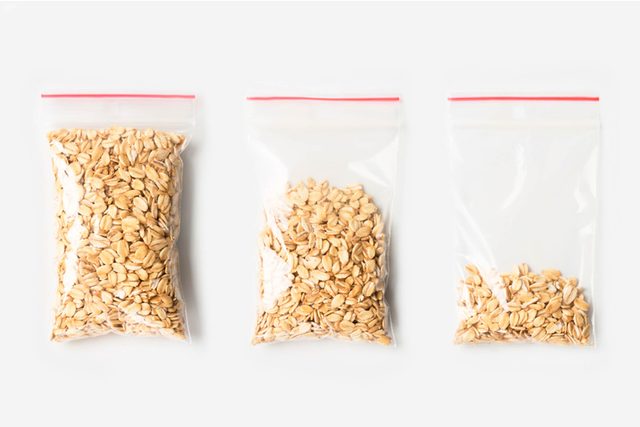
Zip-top bags
Plastic baggies are incredibly convenient because they’re easy to tuck in a lunchbox or purse. But after one use, they are fodder for a landfill heap. Using just two a week means throwing out more than 100 baggies—plus the money you spend on them—a year, says Lisa Beres, a building biologist and healthy home expert and author. And sending your kids to school with those bags every day makes the numbers add up even faster. Instead, use a reusable baggie like (re)zip, which are more durable but just as lightweight and compact as a disposable Ziploc. A two-pack costs about $8, so the savings will add up when you keep reusing instead of buying new. Find out the 11 Trader Joe’s items you should never buy.
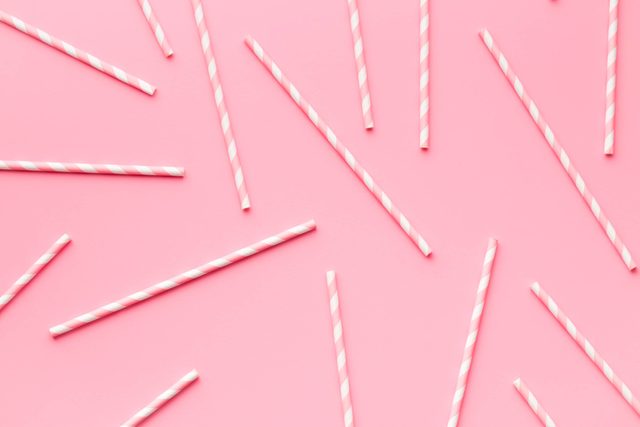
Straws
Americans use an estimated 500 million straws a day—that’s a lot of plastic going into landfills! If you like sipping your beverages through a straw, switch to a reusable glass, metal, or bamboo straw, says Jonathan Zaidman, head of regional expansion for The Ecology Center. Even if you stock reusable straws at home, you can’t control restaurants that deliver a straw for every drink and refill, whether you use it or not. But you can ask your server not to leave any when you get your drinks. “It takes a little time to get used to remembering to ask, and oftentimes you ask and the server will still bring you a straw,” says Zaidman, “but we think … taking that first consumer step forward is a beneficial and impactful way to make change.”
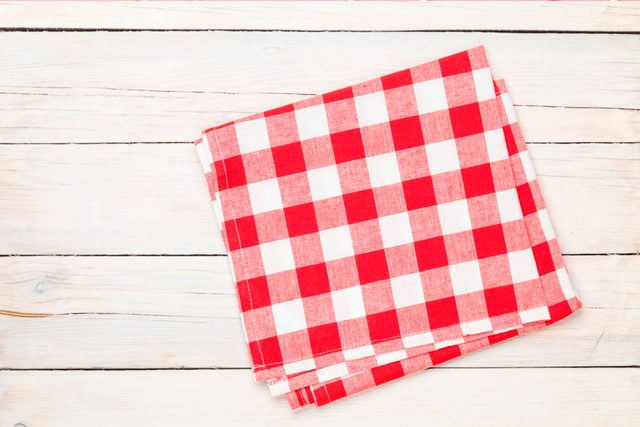
Paper towels
A 36-pack of microfiber cloths will cost you just a few bucks more than a 12-pack of paper towels, but it will last you way longer. You can wash a microfiber cloth, so you won’t need to replace them after every use. Plus, the fibers won’t leave lint behind, which makes cleaning easier. “It has a positive charge that picks up dust and dirt, which has a negative charge,” explains Beres. “They actually attract the dust and dirt, unlike a paper towel, where you’re just kind of wiping it.” If you can’t let go of your tear-and-use routine, try The Unpaper Towel, a roll of washable cloths that pops right into your paper towel holder. Here’s everything you need to know to make the switch to microfiber.
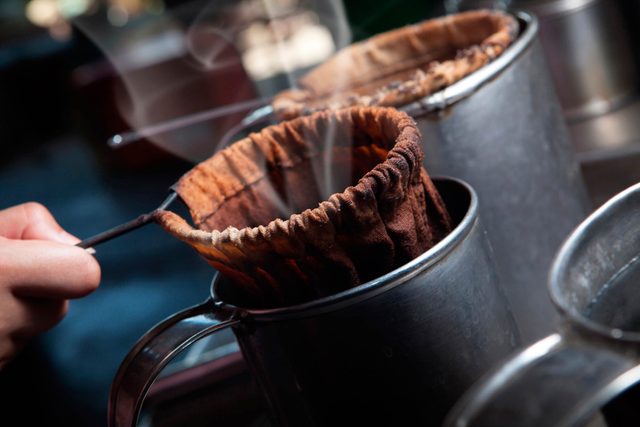
Coffee filters
“A simple way to be conscious of waste is switching out even just one item in your kitchen,” says Sara Skirboll, shopping and trends expert for RetailMeNot. A drip coffee maker can use a reusable filter instead of disposable paper ones, and even a Keurig doesn’t need a new K-Cup every time. Pick up a reusable K-Cup, and fill it with your favorite coffee, recommends Skirboll. These are the 12 foods you should never buy generic.
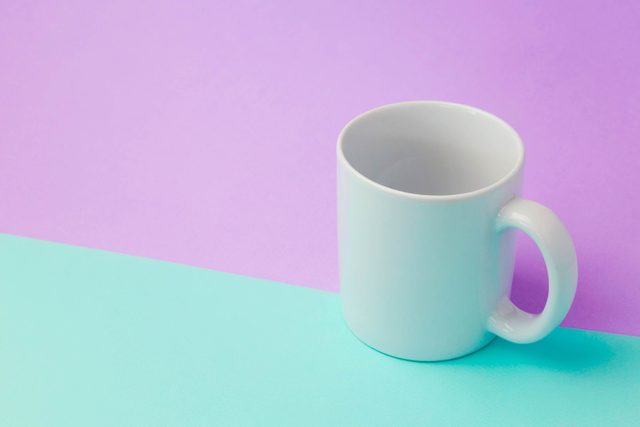
Coffee cups
Next time you make a coffee stop, bring in your own thermos or mug. Some places, like Starbucks, sell cheap ones in-store that you can bring back to reuse, while others will lend you a mug if you aren’t taking it to go. Sure, you can’t take it to go like a disposable paper cup, but that’s actually a good thing. “There’s nothing wrong with sticking around for five to ten minutes and not always being on the run,” says Zaidman. “You get to take a breather and meet someone new or take in your surroundings.” These are the 10 items to never buy if you’re looking to declutter.
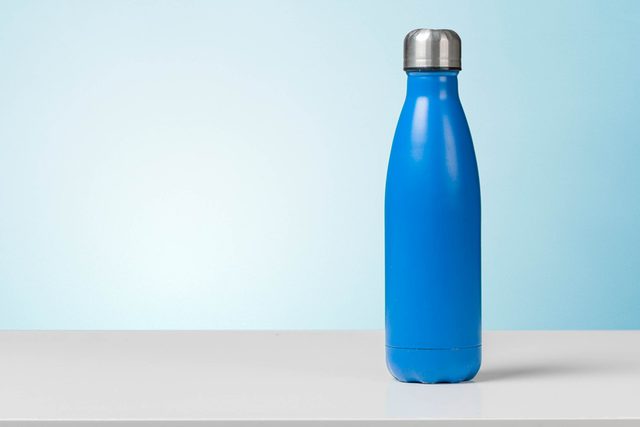
Water bottles
About 35 million plastic bottles go to U.S. landfills every year, and they can take up to 1,000 years to biodegrade. Beyond the eco-friendly reasons to switch to a reusable water bottle, though, it also saves you money. Most tap water is perfectly safe to drink, and even investing in a filtration system saves cash. You’ll put down about $250 for a particularly good brand like Propur or Berkey, but those brands save money in the long run, especially if you spend that much on disposable bottles, says Beres. Propur and Berkey last longer without replacement filters than a typical Brita and give you even cleaner water. That filtered water will taste even better from a reusable bottle like S’well, says Skirboll. “Not only are you saving money, but you’re saving the environment and keeping your drinks cold for hours,” she says. “It’s a win-win!”
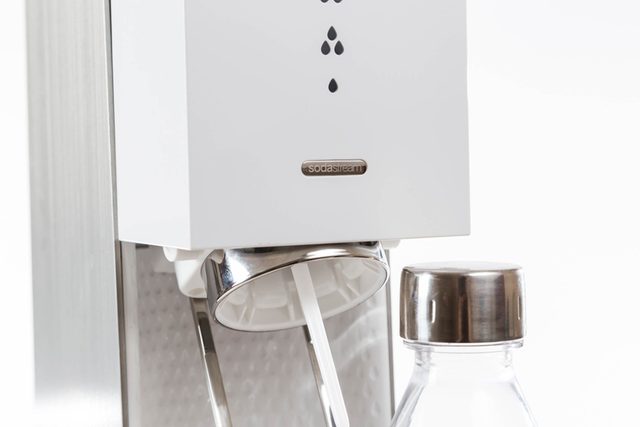
Sparkling water
Getting water from the tap is easy enough, but what about when plain water just won’t make the cut? SodaStream is an appliance that carbonates your water so you can get some fizz without adding more disposable bottles and cans to landfills. A can of Schweppes seltzer water costs about $1—and other brands are even pricier—but a $100 SodaStream breaks down into about 60 cents to make that same amount at home. And over time, each glass will get even less expensive. “The incremental costs can go down to around 22 cents per liter of water,” says Beres.
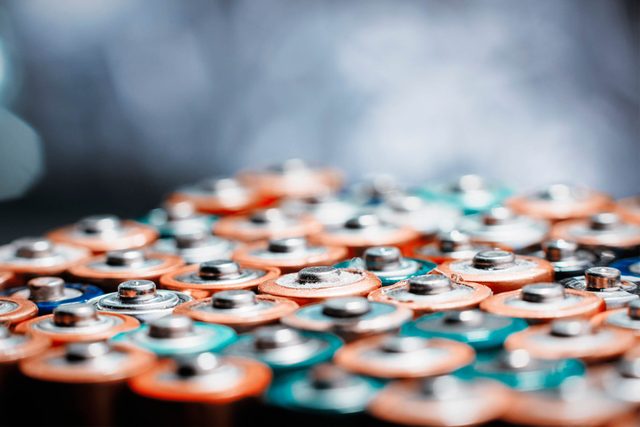
Batteries
Instead of buying a new pack of batteries every time your remote runs out of juice, stick with rechargeable ones. Sure, a four-pack of Panasonic Eneloop AA batteries costs about the same as 24 disposable alkaline ones, but you’ll get about 1,000 recharges from each one—meaning you have the equivalent of 4,000 batteries in each pack. Instead of paying 50 cents per battery use, you pay just a penny. “It is the best battery ever,” says Beres. “I’ve had these batteries for years and am still recharging them.” Learn the 16 things you shouldn’t buy at the dollar store.
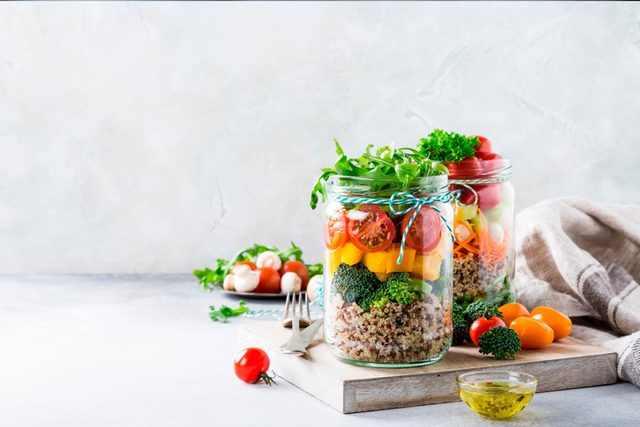
Food packaging
You’d be surprised how many items you can buy in bulk. Depending on where you shop, you might be able to find granola, nuts, candy, dry tea, nut butters, and even laundry detergent. “You can get nearly anything,” says Zaidman. By filling up your own jars and Tupperware, you’ll save money and reduce waste, he says.
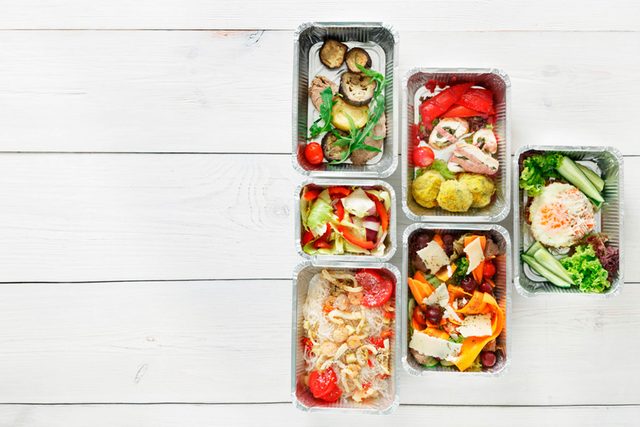
Takeout containers
Not only does a meal out cost about twice as much as a home-cooked meal, but those takeout containers take a toll on the environment. Eating at home puts you in charge of ingredients so you can eat healthier, plus you can reduce waste by washing those plates and utensils when you’re done. Beres suggests preparing freezable meals on the weekends if your weeknights get too busy to cook. When you do eat at a fast casual restaurant, bring your own reusable plate and silverware, says Zaidman. Some restaurants even offer discounts for people who bring in their own takeout containers, he says.
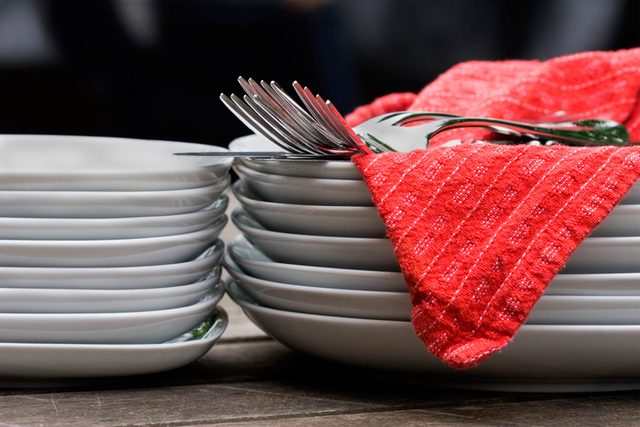
Paper plates
Using paper plates once, then tossing them in the trash creates unnecessary waste. If you’ve been using paper plates because you can’t afford a new set of dishes, head to your local thrift store, suggests Zaidman—you’ll be able to fully stock your kitchen on the cheap, and you won’t have to keep buying new packs of paper goods. You have other options to make big parties easy too. Renting plates, glasses, and silverware from an event company is cheaper than you’d think, says Zaidman. Or, for a no-cost way to cut party waste (and cleanup!), ask guests to bring their own dishes. “At the end of the day, it’s nothing you need to source or take care of or clean or buy,” he says.
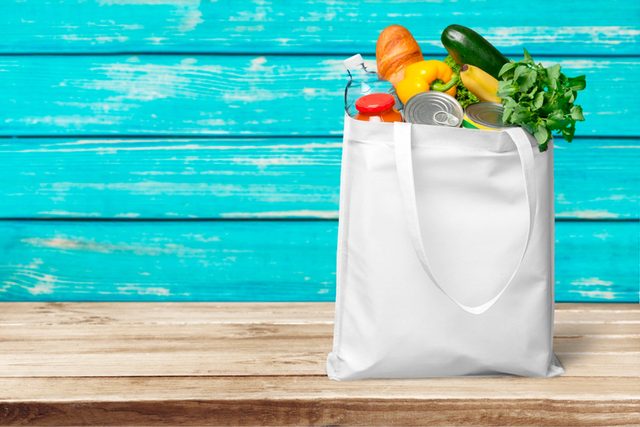
Grocery bags
If you live in an area with a tax on shopping bags, you might already be in the habit of bringing your own reusable sack to the grocery store. But don’t stop there—you can cut more waste by avoiding plastic bags other places, too. Use reusable bag for produce like apples and tomatoes, and bring a tote for retail stores, says Zaidman. If those totes aren’t your thing, feel free to use one that’s more your style. “Maybe you don’t have a tote, but you probably have a backpack or some type of sack,” says Zaidman. “There are so many different options.” These are the 27 foods you should never buy at the supermarket.